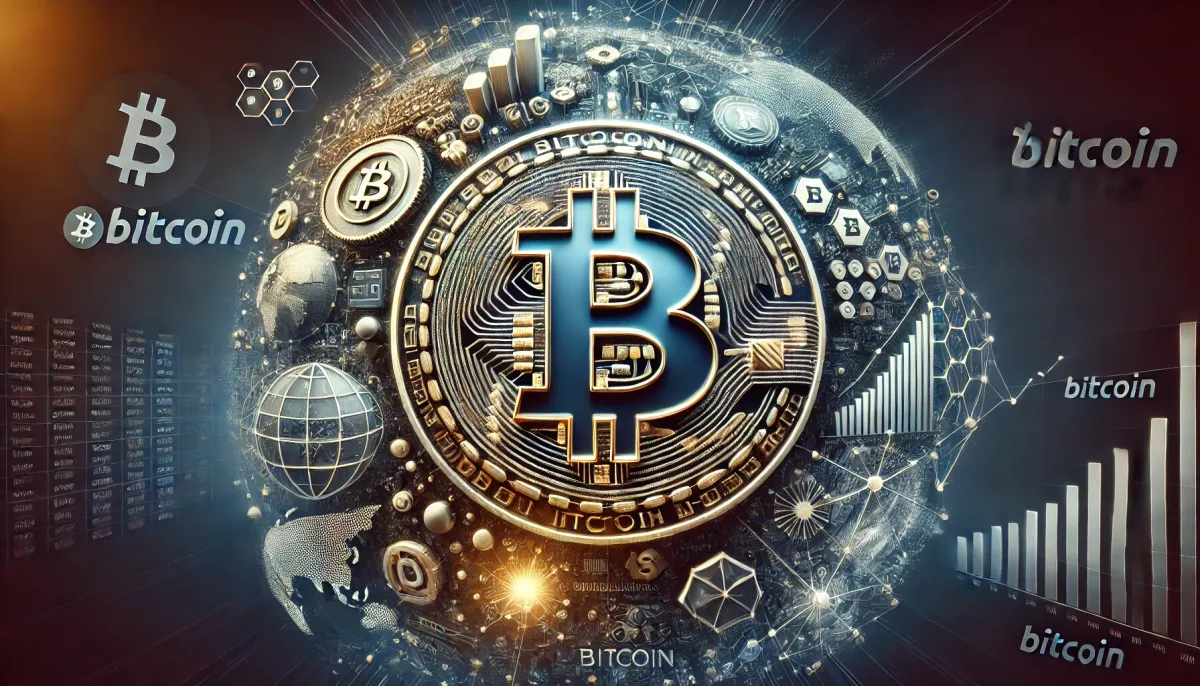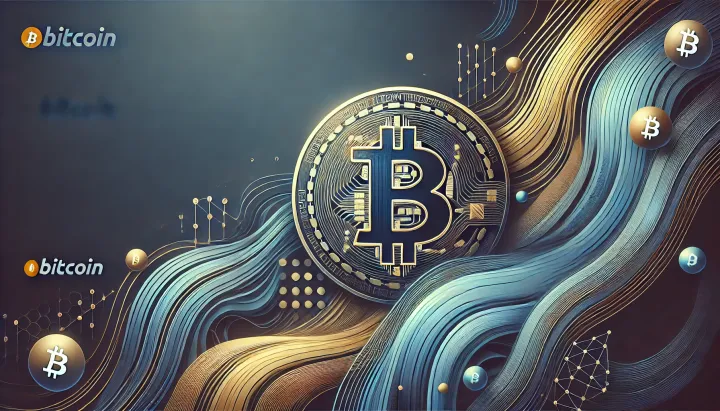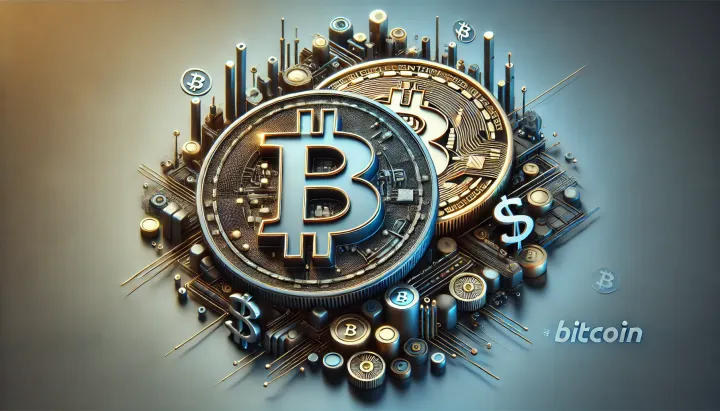Bitcoin as the New Oil: U.S. Fiscal Strategy and Global Market Rebalancing
The December 3, 2024 episode of The Coin Stories podcast features Luke Gromen discussing the U.S. fiscal crisis, rising global trade tensions, and Bitcoin’s potential adoption as a strategic reserve asset.

- My 'briefing notes' summarize the content of podcast episodes; they do not reflect my own views.
- They contain (1) a summary of podcast content, (2) potential information gaps, and (3) some speculative views on wider implications.
- Pay attention to broadcast dates (I often summarize older episodes)
- Some episodes I summarize may be sponsored: don't trust, verify, if the information you are looking for is to be used for decision-making.
Summary
The December 3, 2024 episode of The Coin Stories podcast features Luke Gromen discussing the U.S. fiscal crisis, rising global trade tensions, and Bitcoin’s potential adoption as a strategic reserve asset. He connected the dollar’s future to energy-linked financial tools like Bitcoin, arguing that U.S. fiscal survival might depend on reshaping its monetary reserves, revising debt policy, and embracing disruptive economic reforms.
Take-Home Messages
- Unsustainable U.S. Debt Levels: U.S. fiscal instability demands innovative monetary policy solutions.
- Bitcoin’s Strategic Role: Bitcoin could serve as a modern reserve asset, reshaping fiscal policy.
- Geopolitical Power Shift: U.S.-led economic realignment could disrupt global trade and alliances.
- Tariff Risks: Tariffs may strengthen the dollar temporarily but risk destabilizing financial markets.
- Early Policy Action Required: Aggressive fiscal reforms are critical during the next U.S. administration’s early term.
Overview
Luke Gromen presented a stark analysis of U.S. fiscal challenges, emphasizing debt-driven economic vulnerabilities. He warned that an overvalued dollar could spark foreign asset sell-offs, destabilizing capital markets. Tariffs might provide short-term dollar support but risk triggering inflation and financial dislocations.
He proposed that the U.S. might adopt Bitcoin as a strategic reserve asset, akin to oil’s role in backing the dollar after the 1970s energy crisis. Bitcoin’s energy-backed nature could reshape how global reserves operate, boosting U.S. debt stability through increased stablecoin-backed treasury bond demand.
Gromen highlighted significant geopolitical consequences stemming from U.S. policy shifts, particularly in relation to China and Russia. He argued that delaying disruptive reforms would intensify fiscal crises, creating systemic risks. The conversation linked reshoring policies to inflationary pressures, further straining the dollar-dominated system.
Ultimately, Gromen suggested that adopting Bitcoin-backed financial instruments could provide liquidity and reduce U.S. reliance on foreign capital. His analysis urged immediate action, emphasizing that delayed reforms could force the U.S. into a cycle of inflation, asset liquidations, and geopolitical instability.
Stakeholder Perspectives
- U.S. Treasury and Federal Reserve: Likely to explore unconventional fiscal strategies to manage unsustainable debt.
- Global Central Banks: May reconsider U.S. Treasury holdings and diversify reserves into Bitcoin or gold.
- Institutional Investors: Likely to adopt new frameworks involving asset-backed digital securities.
- Energy-Exporting Nations: Could integrate Bitcoin-backed contracts into energy trade agreements.
- U.S. Policy Makers: Must balance inflation control, fiscal responsibility, and foreign policy stability.
Implications
The U.S. may face a difficult fiscal path requiring immediate policy action. Bitcoin-backed instruments could provide alternative debt financing mechanisms, reducing reliance on foreign-held treasuries. However, integrating such tools would require regulatory clarity, central bank coordination, and careful management of market expectations.
Geopolitical consequences could reshape global financial systems. A move toward energy-backed reserves might accelerate asset reallocation by other major economies. This shift could trigger inflationary cycles domestically while creating strategic opportunities for modernizing U.S. capital markets and boosting its industrial base.
Future Outlook
The dollar’s long-standing global dominance appears increasingly uncertain. U.S. monetary policy might turn toward Bitcoin-linked reserves to stabilize the debt market while mitigating inflation. Early policy actions, including regulatory frameworks for digital assets, could reduce long-term economic disruption.
Failure to enact aggressive fiscal reforms could destabilize global capital flows, especially if international rivals adopt asset-backed reserve models. U.S. policymakers must act swiftly, ensuring that global trade relationships remain secure while managing domestic inflation through currency realignment.
Information Gaps
- How would U.S. Treasury adoption of Bitcoin influence global central bank reserve allocation strategies? Bitcoin adoption by the U.S. Treasury could drive reserve diversification, potentially destabilizing current asset allocation models in major central banks.
- What fiscal reforms could slow U.S. debt accumulation while maintaining market stability? Identifying viable fiscal reforms is critical to slowing debt accumulation while preventing destabilization of equity and bond markets.
- How might stablecoin-backed treasuries impact liquidity in U.S. bond markets? Stablecoin-backed treasuries could create new liquidity streams, reducing reliance on foreign investors while requiring new market regulations.
- How could Bitcoin’s energy-backed financial model alter global energy market dynamics? Integrating Bitcoin into energy markets could disrupt traditional oil-backed trade models, necessitating updated trade policies and financial agreements.
- How does large-scale reshoring affect U.S. inflation across key industrial sectors? Inflation risks linked to reshoring could escalate unless supply chain disruptions are mitigated through policy interventions and industrial investments.
Broader Implications for Bitcoin
U.S. Fiscal Policy and Debt Strategy
The U.S. government might adopt Bitcoin-backed financial instruments to offset fiscal imbalances, potentially reshaping debt issuance policies. This approach could reduce reliance on foreign-held treasuries, creating a more flexible debt management model. However, integrating such assets would require new regulatory frameworks and international coordination to maintain fiscal stability.
Global Reserve Currency Evolution
Bitcoin’s acceptance as a reserve asset could disrupt the current global reserve currency system centered around the U.S. dollar. Central banks might diversify into Bitcoin or similar digital assets to hedge against sovereign debt risks. This shift could weaken the dollar’s dominance while encouraging a multi-asset reserve model.
Energy-Backed Financial Systems
Bitcoin’s proof-of-work system, tied to global energy production, could redefine how energy-exporting nations conduct international trade. Countries may adopt Bitcoin as a financial asset linked to energy reserves, boosting its utility in commodity-backed trade agreements. This dynamic could align financial markets more closely with energy market fundamentals, reshaping global trade flows.
U.S. Industrial and Economic Security
Reshoring-driven inflation could spur innovation in U.S.-based manufacturing and energy production. Policies supporting energy-linked financial models might accelerate domestic infrastructure investment, strengthening economic resilience. This could stabilize critical supply chains while fostering long-term U.S. economic security.
Geopolitical and Trade Realignments
Global trade dynamics could shift as the U.S. moves toward an alternative asset-backed monetary system. Countries opposing U.S. policies might deepen bilateral trade alliances outside the dollar system, especially involving China and Russia. This realignment could fracture traditional trade blocs while creating opportunities for emerging economic coalitions.
Financial Market Modernization
Adopting Bitcoin-backed treasuries and asset-linked stablecoins could modernize U.S. capital markets. This shift might improve liquidity and attract new investment streams while fostering digital asset integration into traditional finance. However, navigating regulatory complexities would be critical to ensuring seamless adoption without market disruptions.
U.S. National Security Considerations
The U.S. Department of Defense might view Bitcoin’s decentralized infrastructure as a national security asset. Establishing a Bitcoin stockpile could ensure transactional resilience during geopolitical conflicts or cyberattacks. This approach could enhance financial stability in scenarios involving global power struggles or military-driven trade disruptions.
Inflation and Monetary Policy Management
Bitcoin’s integration into U.S. fiscal policy could influence inflation control measures through currency devaluation. A managed dollar devaluation tied to Bitcoin’s valuation might stabilize domestic inflation while easing debt service burdens. Policymakers would need to carefully balance inflationary pressures with broader economic stability goals.



Comments ()